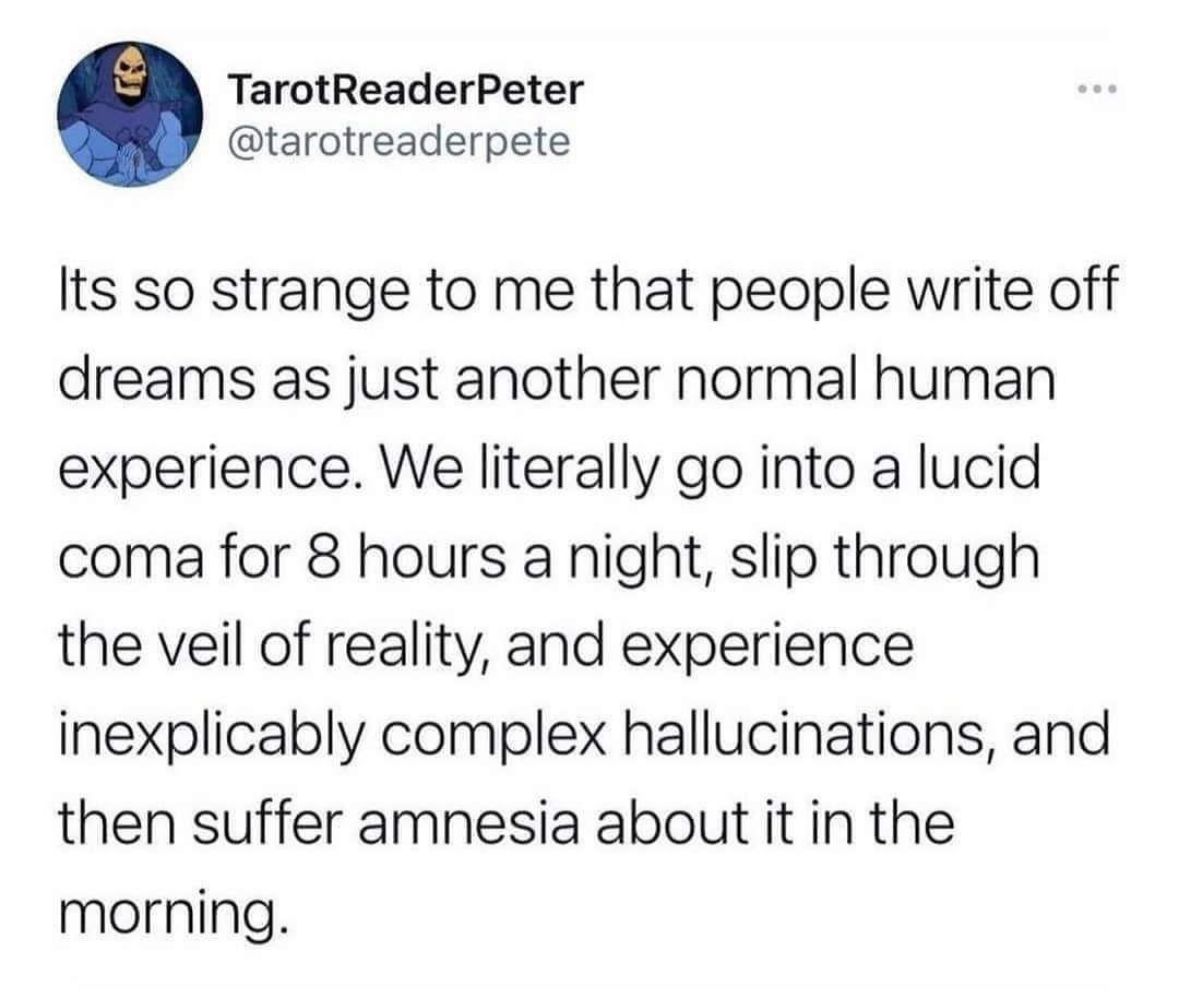this post was submitted on 25 Sep 2024
952 points (97.4% liked)
People Twitter
5403 readers
654 users here now
People tweeting stuff. We allow tweets from anyone.
RULES:
- Mark NSFW content.
- No doxxing people.
- Must be a pic of the tweet or similar. No direct links to the tweet.
- No bullying or international politcs
- Be excellent to each other.
- Provide an archived link to the tweet (or similar) being shown if it's a major figure or a politician.
founded 2 years ago
MODERATORS
you are viewing a single comment's thread
view the rest of the comments
view the rest of the comments

As with the above posters, any idea if regularly dream journaling (and potentially lucid dreaming) is actually healthy or not?
I say this as someone who gets pretty bad nightmares and has had numerous lucid dreams (even transitioning from nightmare to lucid dream)
I have no idea if further engaging with my dream state is healthy or not?
I have never heard of it being dangerous before, but if I had to speculate I'd say it probably depends on how you use it: You might be able to take command to end the nightmare but I'm not a doctor or psychiatrist but maybe in avoiding the nightmares altogether you're denying yourself some sort of personal growth or insight?
The real answer is probably: More research needs to be done.
It's probably safe. The very reason I started getting into lucid dreaming was to control my nightmares.
On rare occasion I’ve taken control of nightmares in a Lucid dream state - typically waiking up momentarily and then going back to sleep.
I’m just not sure if the psychic cost of having these types of intense dreams encoded in memory is healthier than just sleeping and not remembering.
A bit plagued by my dreams ( thereby my subconscious ) if I can remember them.
That was the question I guess, I hear the idea I should engage more to remember dreams, but not sure if that is healthy for people to do who have vivid and disturbing dreams regularly (eg. Under attack, people I love getting hurt ect…)